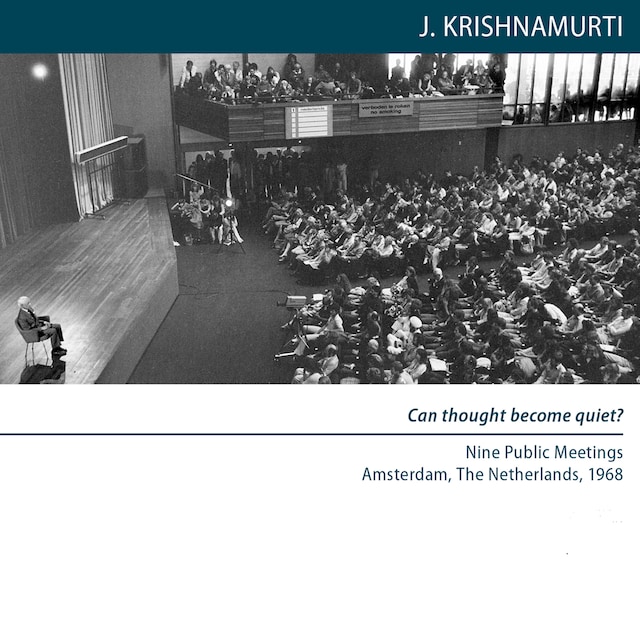
Can thought become quiet?
Nine Public Meetings Amsterdam 1968
Description of the book
IF WE MAY, we will continue with what we were talking about yesterday. When you look at a field stretching out to the horizon - a field of tulips - words come into your mind: how beautiful it is, the colour, the brilliancy, the texture, the depth of the colour. This whole field of colour with its beauty is put into words. Or you translate it in terms of some symbol; or you want to write about it, paint it, carry some of those flowers back to your house. And as you observe, thought begins to discern, to judge, to evaluate. And as you still go on looking, there is a space between you and the flower, between you and that field of brilliant colour. This space, this division between the observer and the thing observed, the thinker and the thought, means there are two separate things. In this division between the observer and the thing observed is the whole issue of life, the whole problem of existence. In that division there is conflict, there is choice, there is constant struggle.
As we said yesterday morning, we have many problems at all levels of our existence. And we ask ourselves if it is not possible to find the root of all these innumerable, complex, subtle problems, instead of dealing with each problem by itself; whether we could not by observing the very core, the very root of our problems, go beyond, by finding that one root from which all our problems spring.
And we also asked yesterday whether it is possible for man, living in modern society, with its tremendous pressures, with its competition, with its corrupt morality, with its total disorder, whether it is at all possible to be free of fear. Not only the fear of something we do not know - as death - but also the fear of life, this daily, monotonous life of routine, of strife, of endless competition; this constant measuring of oneself with something more, the measurement of success, of achievement, in which there is frustration, agony, an incessant struggle within and without. Can man - that is, you and I - ever be free from this central issue, or rather one of the main issues of life, which is fear?


